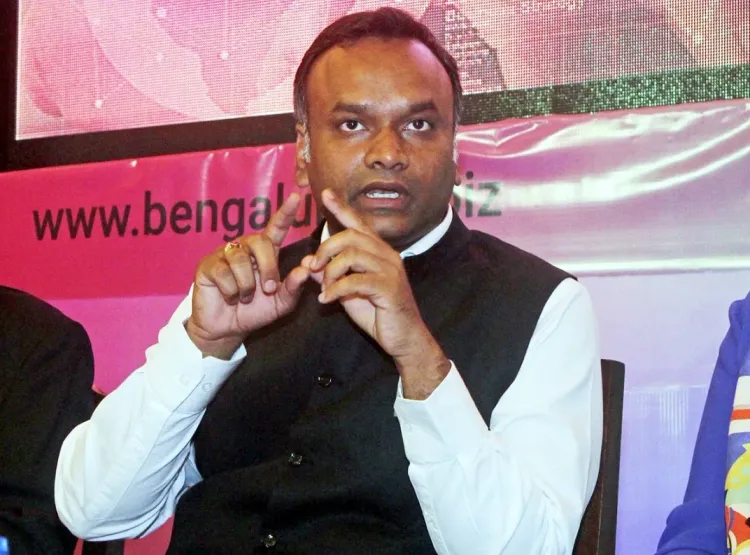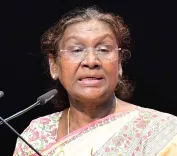Will Congress Ban RSS Again if They Come to Power at the Centre?

Synopsis
Key Takeaways
- Priyank Kharge has proposed a potential ban on the RSS if Congress wins.
- The remarks were triggered by statements from RSS leader Dattatreya Hosabale.
- Kharge emphasizes the importance of secularism and socialism.
- The RSS has faced bans twice in history, according to Kharge.
- Kharge criticizes the RSS's treatment of constitutional ideals.
Bengaluru, July 1 (NationPress) Karnataka Minister for Rural Development and Panchayat Raj, IT and BT, Priyank Kharge, has ignited a debate by declaring that should the Congress regain power at the Centre, it may contemplate placing a ban on the Rashtriya Swayamsevak Sangh (RSS).
Kharge's comments were in response to remarks made by senior RSS leader Dattatreya Hosabale, who suggested the removal of the terms ‘secular’ and ‘socialist’ from the Constitution.
“What ideology does Mr. Hosabale represent? He hails from an RSS background — a group that has consistently opposed secularism, equality, and socialism,” Kharge stated.
“Since its formation, the RSS has displayed a strong aversion to the Constitution, the principle of equality, and economic justice. This is not a new stance — they are merely restating their long-standing beliefs,” he remarked.
“We have been against the RSS ideology from the outset, and we persist in that opposition. We have previously imposed a ban on the RSS twice. Subsequently, they approached us pleading to lift the ban. Reversing that decision was an error,” he continued.
“If our government comes to power at the Centre, we will evaluate the possibility of banning the RSS once more,” Kharge asserted.
“What is objectionable about the term ‘secular’? What is wrong with ‘socialism’? Why do they have such an aversion to these concepts? Their ideology favors only one religion and a specific group of people. However, we will uphold and defend the Constitution,” he emphasized.
“The RSS should reflect on what Ambedkar stated - that adaptations must be made periodically, in accordance with the people’s aspirations. The Constitution is a dynamic document. Do they even grasp that?” he questioned.
“They nullified Article 370 - was that part of the original Constitution? No. They enacted an amendment to accomplish that. Article 371(J) wasn’t included initially - it was introduced through an amendment. The RSS did not partake in the freedom struggle, and now they are attempting to concoct their own version of history. That’s why they circulate all sorts of misinformation on WhatsApp and Facebook,” he added.
“First, they need to read Ambedkar thoroughly. The RSS has always been antagonistic towards him,” he claimed.
“I raised this matter in the House and submitted documentation to the BJP. Yet, they have not resigned. Instead, they bark like stray dogs and attempt to distract from the core issues. They should educate themselves first,” he concluded.






